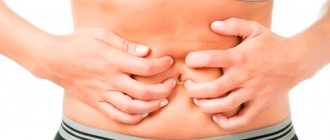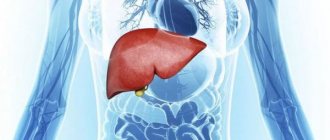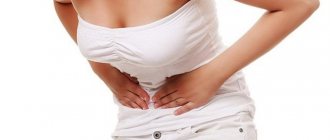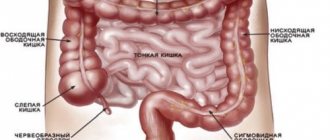How to improve digestion and bowel function? As a rule, this question is asked by people who lead a sedentary lifestyle and are accustomed to an unbalanced diet. But these are not all the factors that can lead to disturbances in the functioning of the gastrointestinal tract. Why can some people eat junk food all the time, but their bowels will work like clockwork, while others must regularly take stimulant medications? Is it all about nutrition or are there other, more serious reasons? You can find answers to these questions in this article.
How to improve digestion and bowel function
What to do if you have constipation?
Basic rules that everyone can follow will help to activate the functioning of the digestive system during constipation:
- It is recommended to give up bad habits and unhealthy diets (spicy foods, carbonated and strong drinks);
- consume large amounts of vitamins or biologically active substances, mainly group B;
- you need to eat 4-5 times a day, but in small portions (the diet should include exotic foods, vegetables, fruits - peaches, apples, kiwi, cucumbers, cabbage, etc.);
- you can drink castor or vaseline oil;
- stop taking medications that could be etiological factors for constipation;
- if such a situation arises against the background of stressful situations, you need to drink herbal-based sedatives;
- Medical experts do not advise pushing too hard if you have constipation, as this can lead to injury to the hemorrhoid and the occurrence of hemorrhoids.
Sometimes they resort to using boiled beets. It improves intestinal motility.
enemas are sometimes used.
. They help relieve constipation and improve bowel movements. Enema cleansing is only done as a last resort because frequent use can damage the small intestine.
The main methods of treating constipation
In order for the gastrointestinal tract to function properly, you need to lead a healthy and active life. There are general provisions that must be observed for the proper functioning of the entire body, including the digestive organs:
- Movement improves the digestive system and the functioning of all organs, which has a positive effect on a person’s overall well-being. You need to do exercises in the morning, walk more in the fresh air, walk, swim, dance, skate or roller skate.
- You also need to drink the right amount of fluid, because if there is a lack of it, a diet to improve the functioning of the gastrointestinal tract is ineffective. The liquid softens stool, stimulates intestinal function, which helps combat constipation. Therefore, it is necessary to drink 1.5-2 liters of clean water without gas per day.
- It is necessary to exclude junk food from the diet. This includes: semi-finished products, fatty and spicy foods, difficult-to-digest foods, canned food, soda, alcohol, packaged juices, fast carbohydrates (chocolate, buns, etc.). It is necessary to add foods rich in fiber and do fasting days. Fractional nutrition in small portions will also have a positive effect on the intestines, because the load on the gastrointestinal tract will decrease.
Avoid eating processed foods
- Hygiene is also important for preventing intestinal diseases. Even if there was no need to leave the house, you should always wash your hands before eating. It is also very important to wash fruits and vegetables, eggs.
- Taking vitamins and minerals and biological supplements to normalize intestinal functions will have a good effect on the health of the gastrointestinal tract. These drugs include Bifidumbacterin. Replaced with drugs containing probiotics and prebiotics (Acipol).
- Self-massage of the abdomen. Make circular movements, slightly pressing on the stomach. It should be performed in the morning, on an empty stomach, but after drinking 1-2 glasses of water.
- Exercise with a hoop (hula hoop with massage elements) will also have a beneficial effect on the functioning of the intestines.
- It is worth giving up starvation diets.
Hoop exercises are useful for preventing constipation
- Frequent use of laxatives leads the body to addiction. The drugs often include the plant senna, which can cause sluggish bowel syndrome. With it, without pills, the intestines themselves will no longer be able to function normally.
If you follow all these recommendations, you will gradually be able to normalize the functioning of the digestive organs.
Main causes of constipation
The main factors influencing the act of defecation:
- Poor nutrition. There are many reasons for constipation, but this is the main one! In the modern world, people pay less and less attention to their diet; it is often poor in plant fibers and fiber. These substances improve intestinal motility, stimulating its work. Thanks to this, feces are removed from the body in a timely manner. Products rich in plant fiber: rye and bran bread, cereals, vegetables, fruits.
An addiction to baked goods can cause constipation.
But simple carbohydrates, such as sugar and baked goods made from wheat flour and animal fats, occupy a large part of the human diet, and this is wrong! In combination with drinking a small amount of liquid, this leads to constipation. It is important to drink from 1.5 to 2.5 liters of water per day.
We have selected useful articles on the topic
Methods for treating Staphylococcus aureus and restoring the intestines
01.05.2019
What can a nursing mother eat if her newborn has colic?
20.06.2019
How to eat for patients with intestinal diverticulosis
10.05.2019
- Medications. Many medications have constipation as a side effect. These include: antibiotics, antiulcer drugs, anti-inflammatory and antifungal drugs and anti-tuberculosis drugs.
- Stress. People are often in a state of depression, mental stress - this also has a tremendous impact both on the body as a whole and on the intestines.
Emotional imbalance disrupts the habit of daily bowel movements.
- Suppressing the natural urge to go to the toilet. In the morning, after waking up, the contents of the rectum begin to put pressure on the intestinal walls, which leads to the urge to go to the toilet. If this reflex inherent in nature is suppressed, then in the future, more and more filling of the rectum will be required to trigger this reflex.
With constant stress, the risk of constipation is also high
What helps with diarrhea?
Diarrhea (diarrhea), as well as constipation, may indicate a persistent disorder in the digestive tract. How to normalize intestinal function during diarrhea?
There is a method for this, which differs from the previously described methods:
- dietary restrictions are recommended (exclude carbohydrate and fatty foods);
- do not drink unleavened milk;
- exclude fiber from the diet;
- limit the consumption of spices.
Medications based on probiotics will help normalize intestinal function.
How to improve the functioning of the gastrointestinal tract
If abdominal discomfort is not the cause of a serious illness, and the symptoms indicate minor gastrointestinal disorders, then home treatment is possible. To do this, you need to give up cigarettes and frequent alcohol consumption, try to be less nervous and rest more, and eat right. To relieve pain in the gastrointestinal tract, antispasmodic tablets, for example, No-Shpa, Duspatalin or Neobutin, will help.
What to do if you have problems with the gastrointestinal tract
Restoring the functioning of the gastrointestinal tract is a long process of controlling your habits and self-discipline. The main thing is to adhere to the regime and a certain diet.
Basic nutrition rules:
- It is necessary to observe intervals between meals. You need to introduce breakfast, lunch and dinner into your daily routine, assigning them to a specific time. Snacks should be healthy and light. It could be fruit or yogurt, but not chips or a hamburger.
- The daily diet should include a first course. Hot soups and broths promote good digestion.
- Be more careful when choosing products. They must be fresh and natural.
- Drink more fluids, preferring clean drinking water.
How to make a “lazy” intestine work?
A sedentary lifestyle, unhealthy diet (fast foods, products of synthetic origin), chronic diseases of internal organs can lead to the development of “lazy” bowel syndrome (dyskinesia).
What needs to be done to make the “lazy” intestines work? There are many methods for activating the digestive system of the pelvic organs. Many methods have been described previously (movement, medications, massage), but it is worth adding the recommendations that doctors give specifically for dyskinesia:
- diet therapy (refrain from eating foods rich in proteins);
- gymnastics or yoga (using a special set of exercises in the style of oriental medicine or visiting clubs and sections with sports inclinations).
After watching this video, you will learn in detail how to do gymnastics for a “lazy” intestine at home.
General prevention tips
Normalizing intestinal function is not an easy task. Treatment takes a lot of effort and money, so it is best to prevent disturbances in the functioning of the digestive system. Unfortunately, these days it is not at all possible to avoid this - a frantic rhythm and poor nutrition cannot have a positive effect on the intestines. To reduce the risk of problems with the digestive system, it is recommended to follow these rules:
- active movement both on the street and at home (charging);
- attend sports clubs (fitness, water aerobics);
- reduce a sedentary lifestyle;
- Healthy food.
You can normalize intestinal function using different methods, but it is best to follow the general advice and recommendations of your doctor to prevent ailments. Prevention of digestive problems will help you avoid pathological conditions such as constipation or diarrhea and will give you a blooming appearance and health for many years.
The intestine is the part of the gastrointestinal tract where digestion occurs and secretions are formed. The main functions are the digestion of food gruel, the absorption of liquids and nutrients, the synthesis of some hormones and vitamins, and participation in the formation of the human immune system.
Drug treatment
In pharmacies you can find a variety of medicines to improve digestion, relieve constipation or diarrhea, and to stabilize microflora. However, it is always worth remembering that the selection of a medication should not be carried out independently, without consulting a doctor or pharmacist. If the negative state of the intestines persists for a long time, it is best to undergo a medical examination.
Intestinal problems are a delicate issue. However, you shouldn’t turn a blind eye to it. At the first symptoms, it is necessary to start changing your lifestyle and correct your diet, take preventive measures so that in the future there is no need to take potent medications.
The intestine and its purpose
To find out how to improve the functioning of the intestines, you need to know what the problem is, in which part of the organ the disorder occurred, what is causing it, and only after a thorough diagnosis begin rehabilitation measures. The organ consists of two main parts - the large and small intestines. The total length is about 4 meters (in the male body the intestines are longer than in the female).
The diameter of different sections is not the same, the minimum value is 3 cm (thin part), and the maximum is 8 cm (thick part). The inner surface of the organ is covered with a mucous membrane, which promotes the movement of contents along the tract and also protects it from damage. The mucous membrane is located above the layer of fatty tissue, where the lymph nodes and blood nodes are located. The muscular membrane serves as the framework for all layers; it promotes mixing and movement of the contents in a natural direction.
In men, the anterior wall of the rectum is in contact with the bladder and prostate gland, in women – with the uterus and the posterior wall of the vagina. Inflammatory processes in contacting organs can progress, causing additional foci of pathology.
Function of the intestines in the body:
- Digestion of food with the participation of pancreatic enzymes.
- The breakdown of food into simple amino acids, monosaccharides, monoglycerides, etc. The process occurs on the walls of the small intestine, for which intestinal enzymes are secreted by the organ.
- In the large intestine, water is absorbed, feces are formed and evacuated.
- Synthesis of hormones - pancreozymin, motilin, intestinal glucagon, neurotensin, etc. The secreted hormones regulate digestive processes and ensure the functionality of other body systems. The vast majority of hormones are secreted in the duodenum.
- Synthesis of immunoglobulins (subpopulation of T-lymphocytes) - to ensure cellular immunity.
- Production of beneficial microflora, which is the body’s internal shield against microbes and bacteria. For example, bifidobacteria neutralize primary cancer cells, and lactobacilli stop the development of allergic reactions.
How to improve bowel movements using medications?
Drug treatment should be used only in extreme cases when nothing else has the desired effect.
The fact is that with prolonged use of chemicals, the body can simply get used to them, which will lead to the opposite effect. Moreover, dysbacteriosis will gradually appear in the intestines, and the body will begin to lose a considerable part of microelements, because the intestines will simply stop absorbing them. When choosing a suitable product for normalizing stool, it is better to give preference to products containing lactulose. Thanks to it, the effect of the product will be soft, without a dehydrating effect.
Here is a list of the best drugs for normalizing intestinal motility:
Good luck .
The use of the drug is indicated for constipation (including chronic), as well as intestinal dysbiosis, in the preoperative period (when surgery is planned on the colon), etc. The drug is contraindicated in persons suffering from intestinal obstruction, hypersensitivity, rectal bleeding, as well as those with who is suspected of having appendicitis.The daily dosage of the drug for constipation is as follows: in the first 3 days – 15-45 ml of syrup; after – no more than 30 ml. The price ranges from 60-300 rubles depending on the manufacturer and the region in which the sale takes place.
Acylact .
The drug is used to treat disorders not only of the intestines, but also of the gastrointestinal tract as a whole, as well as for diseases of the female genital organs and the oral cavity. Available in the form of lyophilisate, suppositories and tablets. For the treatment of constipation, the latter option is usually used. The drug has virtually no contraindications. Only a single manifestation of allergic reactions is possible. The daily dosage is as follows: 1 tablet 2-3 times a day. The price ranges from 115-150 rubles.- Bifidumbacterin .
The drug is used for intestinal infections and inflammations of varying complexity. Indicated for disorders of the intestinal microflora, as well as for the prevention of this problem during the period of taking antibiotics. Among the contraindications, one can note only hypersensitivity and the patient’s young age (up to 3 years). Daily dosage: 1-2 suppositories 2-3 times a day. The price of the drug starts from 70 rubles per suppository. - Bifiform .
The drug is prescribed for the treatment of intestinal disorders of various etymologies. These include diarrhea, impaired intestinal microflora, and irritable bowel syndrome. The drug has no contraindications for use (with the exception of sensitivity to the drug). Daily dosage: 2-3 capsules. The price ranges from 400-800 rubles. - Linux .
The drug is used to treat various intestinal disorders, including flatulence, constipation, indigestion, etc. The drug has no contraindications (with the exception of sensitivity to the components of the drug). Daily dosage: 2 capsules 3 times a day. The price ranges from 250 to 600 rubles (depending on the amount of the drug).
Symbiosis of humans and bacteria
Intestinal microflora is the total number of microorganisms existing in symbiosis with humans. Some of them represent pathogenic microflora. The total number of bacteria in the intestines is about 50 trillion organisms. Most of the feces are dead bacteria. Beneficial microflora is involved in the digestion of food, produces vitamins, breaks down proteins, and harmful microflora parasitizes fermentation products and produces rotting products.
The intestinal microflora is divided into groups:
- The main ones are lactobacilli, bacteroides and bifidobacteria (the latter make up about 90% of all microflora).
- Concomitant – strains of Escherichia coli, enterococci.
- Final – staphylococci, proteus.
With the help of bacteria, vital enzymatic, regulating, and metabolic processes occur in the human body. The microflora synthesizes a number of essential vitamins - C, PP, partly group B, as well as essential amino acids. Thanks to the normal functioning of the microflora, complete absorption of microelements occurs - iron, calcium, vitamin D.
Intestinal dysfunction is often associated with the prevalence of pathogenic microflora, which leads to an imbalance of vitamins and minerals, a weakened immune system, inhibition of detoxification processes, and “irritable bowel syndrome” appears.
To restore normal microflora, it is recommended to eat as many fresh vegetables and fruits as possible. Fermented milk products will bring invaluable help if you prepare them yourself, purchasing milk and starter cultures. In this case, there is always confidence that kefir or fermented baked milk does not contain preservatives or other impurities.
Traditional medicine recommends taking the following steps:
- Diversify the menu with sour berries; rose hips and cranberries are especially valuable. You can take them in any form, but it is preferable to make tea and drink throughout the day.
- Walnuts, pumpkin and sunflower seeds are mixed in equal quantities and crushed in a blender. For a one-time dose, take 2 tbsp. spoons of the mixture are poured with warm water and drunk before meals twice a day. The full course of treatment takes 10 days.
- Calamus root and plantain leaves are mixed in a 1:1 ratio. For infusion, take 2 teaspoons of the mixture, pour boiling water over it, after infusing for 15 minutes, filter and drink 50 ml 30 minutes before meals (3-4 times a day). The course of treatment is 10 days.
Prevention measures
You can prevent the occurrence of various problems with digestion and intestinal function. It's much easier than doing treatment. It is enough to take the preventive measures listed below.
Step 1. Drink enough liquid, that is, at least 8 glasses per day. This will help cleanse the body of harmful toxins that interfere with digestion processes. Water also softens the stool, making bowel movements much easier. If you spend a lot of time on the road, take a water bottle with you. This does not mean that you need a 5-liter canister, which is inconvenient to carry. A small liter bottle will be enough to replenish your water balance. When engaging in active sports, drink plenty of water. The fact is that during training the human body loses a lot of fluid, the reserves of which need to be replenished.
Drink plenty of water
You can tell that you are drinking enough fluid by the color of your urine - it will remain clear throughout the day. Depending on the degree of dehydration, the urine may become more yellow. As a supplement, you can eat fruits that contain a lot of water (tomatoes, cucumbers, asparagus, peaches).
Step 2: Set aside some time every day for exercise. Active physical activity will not only rid the body of excess gases, but will also tone the body. Even spending 8-12 minutes of active movement can help stimulate your digestive system. Physical activity speeds up metabolism, improves blood circulation and stimulates intestinal muscle tone.
Play sports
Step 3: Lose weight if necessary. Obesity can cause the stomach valve to not close properly due to increased pressure on the abdomen. With this disorder, heartburn often occurs. Try to reduce the pressure on your stomach as much as possible by losing weight. With the right approach, you can achieve the desired result safely and quickly.
There are a few more recommendations that will certainly help you get rid of a few kilograms:
- eat in small portions;
- 30 minutes before meals, drink 100 ml of warm water;
- don't overeat;
- The last meal should be 3-4 hours before going to bed.
Get rid of extra pounds
The right regimen, combined with diet and regular exercise, is the key to success.
Step 4. Take your time while eating, eat slowly. This will prevent large amounts of air from entering the stomach along with food, which in turn can lead to discomfort in the abdominal area. Also, when eating food quickly, a person often overeats, which causes increased pressure in the stomach, which significantly impairs the functioning of the digestive system.
Try to eat slowly
Each piece must be chewed thoroughly so that the stomach can be well prepared for food. This time is also necessary for the brain so that it can determine that the body is already full and there is no need to eat anymore. Many people usually watch TV or read an interesting book while eating, but such habits lead to overeating, because a person eats much more food if he is distracted by something.
Step 5. Give up bad habits. As an experiment, try giving up coffee, cigarettes, alcohol, and sugary snacks for at least a week. This will allow your gastrointestinal tract to recover and restore natural microflora. This will also have a positive effect on other body systems, and limiting the amount of sweets in the diet will allow you to get rid of a few extra pounds.
Give up bad habits
Step 6. Before using this or that drug, be sure to read the instructions from the manufacturer. If some problems with the functioning of the digestive system are indicated as a side effect, for example, nausea or heartburn, then you need to find a good replacement for this drug. Ask your doctor to select an effective analogue. But remember that only a qualified specialist can prescribe drugs.
Read the manufacturer's instructions
Signs of gut imbalance
In order for a specialist to figure out how to improve the functioning of the intestines, in each specific case, a diagnosis is required. There are many reasons for disturbances in functioning - from banal intolerance to a product to a hidden disease. It is a mistake to believe that the gastrointestinal tract system is capable of digesting and removing any substance or product. The microflora, although stable, is not indefinite; at a certain point it becomes imbalanced.
Signs of bowel dysfunction are:
- Problems with stool (diarrhea, constipation).
- Abdominal pain, especially in the lower part.
- Bloating, flatulence.
- Ineffective urge to stool.
- Emptying with great effort, but in small quantities.
- Heaviness in the lower abdomen.
- Acne, frequent headaches.
- Profuse sweat, bad breath.
- Weakness, apathy, malaise, etc.
If problems are ignored for a long time, the patient may face an acquired disease that significantly changes life and worsens its quality. If available remedies and diet do not help normalize the condition within one week, then you should consult a doctor. The specialist, after conducting a series of tests and analyses, will identify the cause of the problem and give recommendations on how to improve intestinal function or referral for treatment of a specific disease.
Causes of intestinal dysfunction
There are many reasons that lead to constipation, diarrhea, heartburn, flatulence, and heaviness in the stomach. Here are some of them (the most basic):
► consumption of low-quality products,
►unjustified use of antibiotics, which led to the destruction of beneficial intestinal microflora,
► use of low-quality contaminated drinking water,
► the presence of a large number of pathogenic microflora in the intestines.
If you experience severe diarrhea with a high fever, it is best to see a doctor as home remedies may not be effective.
Common complaints
The main symptom of gastrointestinal disorder that every person faces is abdominal pain. The body's reaction may be a sign of microflora imbalance, poisoning or disease. If the pain is not associated with organ pathology, then the most common complaints are associated with the following problems:
- Constipation. The lack of evacuation of waste products from the rectum is a consequence of many reasons, for example, insufficient or unbalanced nutrition, irregular food intake, dysbiosis, sedentary lifestyle, consumption of small amounts of water, etc. Prolonged difficulty in defecation can lead to hemorrhoids and bleeding. Fecal masses become compacted, dehydrated and settle in the diverticula of the rectum, which in turn causes intoxication of the body.
- Crohn's disease, ulcerative colitis, ischemic colitis - viral or bacteriological diseases, bad habits, heredity, reduced immunity. The patient experiences frequent cramps, dehydration, apathy, and fatigue.
- Diarrhea – occurs due to poisoning, intestinal infections. In severe cases, it may be a consequence of cancer, parametritis or intestinal tuberculosis. Symptoms arise due to the loss of absorption functions of the rectum and emergency evacuation of fluid and accumulated masses, even minor ones, occurs. An increase in body temperature indicates an infectious origin of diarrhea. In the absence of treatment and recovery, the patient's body weight sharply decreases, the immune system weakens, hair falls out, and the skin turns pale.
- Neurogenic constipation - occurs due to psychological reasons, for example, it is inconvenient to have a bowel movement while on a business trip or on a tourist trip. An uncomfortable position is often the cause of constipation; the consequences of prolonged abstinence also have a negative impact on health and cause complications.
The physiological need of a person to evacuate feces is individual, but the options do not go beyond the natural, namely, from 3 times a day to 3 times a week, provided that there is no discomfort.
Which herbs and when to use?
Today, many people strive for everything natural, which is why they prefer to resort to traditional medicine in matters of treatment. There are a huge number of “old-fashioned” methods that help to effectively normalize the functioning of the intestines and digestive tract. Before using them in practice, patients should find out whether they have an individual intolerance to certain plants.
In the absence of contraindications, people can use the following folk recipes:
- Coriander seeds. With their help, people will be able to remove accumulated intestinal gases. To prepare the drug, place pre-crushed raw materials (1 tsp) in a deep bowl and pour boiling water (1 tbsp) over it. After infusion and filtration, the collected liquid is recommended to be consumed before main meals.
- Wormwood herb. It has been used for thousands of years to normalize intestinal function. To prepare the healing product, you need to pour dry and crushed raw materials (1 tsp) into a deep bowl and pour boiling water over it (2 tbsp). After infusing for half an hour, the mixture should be filtered, and the collected liquid should be consumed in half a glass half an hour before meals. The use of this recipe is contraindicated during pregnancy.
- 2 tsp. dry oregano and chamomile herbs should be placed in a deep bowl and mixed. The raw materials are poured with boiling water (1 tbsp.) and infused for approximately 25-30 minutes. After filtering, the collected liquid should be consumed 1/3 cup half an hour before meals.
- Dandelion rhizome. It must be washed and dried well. After this, the rhizome is crushed, and the gruel (2 tsp) is placed in a deep bowl. Boiled and cooled water (1 tbsp.) is added to the raw material. The mixture must be infused overnight (done in the evening). After filtering, the healing liquid is drunk up to four times a day, 50 ml before meals. This recipe helps solve the following problems: normalizes bowel movements, eliminates bloating, improves metabolic processes, stimulates liver function.
- An infusion made from fireweed tea. This drug will help people normalize digestive processes, relieve inflammation, improve intestinal motility, and eliminate constipation. To prepare it, you need to take dry leaves of the plant (2 tbsp), place them in a glass thermos flask and pour boiling water (0.5 l). The mixture should infuse for several hours. After filtering, the healing liquid is drunk before meals several times a day.
- Dried mint leaves should be placed in a mug and pour boiling water over it. After fifteen minutes of infusion, the liquid can be consumed as tea.
Every person has had digestive problems at least once in their life. But there are also those who have heaviness in the stomach and heartburn every day! Less common stool disorders are diarrhea and constipation. To cope with stomach and intestinal problems, you can use herbs to improve digestion. What medicinal plants are suitable for this? We will talk about this further.
Malfunctions of the gastrointestinal tract occur due to poor nutrition or impaired enzyme synthesis. A sedentary lifestyle, alcohol consumption, and daily stress have a negative impact on digestion. How can you help your stomach?
Many gastroenterologists advise their patients to drink infusions of medicinal plants. Some herbs have a laxative effect, so they are used for constipation. Other plants, on the contrary, are prescribed for diarrhea. There are also folk remedies for heartburn and heaviness. Don't know which herbs to improve digestion and bowel function are right for you? We have divided them into groups especially for you.
Heaviness occurs due to insufficient production of digestive juices and enzymes. As a result, food stays in the stomach for a long time. Heartburn occurs due to increased acidity. Here is a list of digestive herbs that will help solve the problem:
- Celery root prevents acidity and reduces heartburn. It is taken raw, and infusions from the dried root are also prepared.
- Calamus root increases appetite and relieves heartburn. It is used in the complex treatment of gastritis and gastrointestinal ulcers.
- Rosehip root stimulates the production of gastric juice and enzymes. Infusions speed up the digestion process in the stomach; they are used against heaviness, heartburn and gastritis.
- Chamomile flowers stimulate the secretion of the intestines and stomach, relieve spasms and pain. They clear the bile ducts, stimulating digestion. Chamomile is used for inflammatory processes, ulcers and gastritis.
- Celandine reduces the concentration of gastric juice, reducing the symptoms of heartburn and relieving pain from peptic ulcers. The plant is also effective as a remedy for flatulence and diarrhea.
Pain and spasms of the intestines are usually the result of an infectious disease, poisoning or poor patency of the digestive canal, which can be caused by a sharp contraction of the intestinal muscles. Colic can be so strong that it knocks you out of your usual rhythm. The following medicinal plants will help cope with them:
- Alder cones are recommended to be consumed in a course for chronic colitis and irregular bowel movements.
- Saxifraga soothes the intestines, improves fluid absorption, and normalizes stool. The root of the plant is used to treat the digestive system.
- Cinquefoil regulates contractions of the intestinal muscles, reduces the frequency and strength of spasms. Infusions and alcohol tinctures are prepared from the rhizomes of the plant.
In cases of poisoning and infectious diseases, diarrhea is common. It can also be caused by intestinal dysfunction and alcohol abuse. Not sure which herbs will help stop diarrhea? Here is the list:
- St. John's wort prevents dehydration and stops diarrhea and vomiting. The herb is often used to treat poisoning.
- Oak bark stimulates digestive processes, removes toxins and poisons in case of poisoning, and helps get rid of abdominal pain and diarrhea.
- Willow bark, due to its astringent effect, normalizes stool. It is used in the form of decoctions for diarrhea.
- Yarrow normalizes metabolic processes, prevents the formation of gases, and stimulates the absorption of water in the intestines. The herb is suitable for the treatment of dysentery, food poisoning, gastritis.
- Bearberry leaves have a strengthening effect and reduce intestinal spasms.
The most common causes of constipation are poor diet, spasms of the digestive tract and intestinal hyperfunction (increased water absorption). Do you want to get rid of constipation? Then use the following herbs for digestion:
- Plum fruits are rich in fiber, which is necessary for the proper functioning of the gastrointestinal tract. Prunes have a persistent laxative effect.
- Centaury helps the body absorb nutrients as much as possible, stimulates the production of intestinal juices and enzymes, and helps cleanse the intestines.
- Valerian root reduces the formation of gases and softens stool.
- Senna ensures normal intestinal motility and acts as a mild laxative.
- Buckthorn bark stimulates the smooth muscles of the intestinal tract and reduces pain during bowel movements.
Most of the plant materials and products made from them to normalize the functioning of the digestive system should be taken before meals. The standard course of treatment is 3 weeks, after which a break is required.
It is preferable to make decoctions and infusions from medicinal plants in enamel containers.
Herbs have a multicomponent composition, so some of them can help with various conditions (for example, chamomile affects the gastrointestinal tract and has a calming effect in irritable bowel syndrome; calamus increases appetite and improves intestinal motility.).
Before starting herbal treatment, you need to try a small amount of the finished product: many plants cause severe allergies. Pregnant and lactating women should consult a doctor before using any (!) herbal remedy.
Red capsicum
Capsaicin contained in pepper has several effects on the gastrointestinal tract:
- stimulates appetite;
- increases the production of gastric juice and improves the process of food digestion;
- affects the functioning of the pancreas, stimulating the production of enzymes.
Use red pepper as a spice before or during meals.
Ginger
Ginger contains essential oils and the substance gingerol, which stimulate the receptors of the stomach and intestines. This allows you to increase the production of digestive juices and enzymes. Also, infusion or tea from this root, when used regularly, has a positive effect on peristalsis.
To do this, a root measuring 1 cm x 1 cm is rubbed or finely chopped, poured with boiling water (200-400 ml) and left for 30 minutes. To improve the taste, add sugar, honey, and dilute with black or green tea.
You can take ginger powder - a pinch three times a day just before meals.
Both red pepper and ginger are not recommended for use if you are prone to heartburn, with gastritis with low acidity and ulcerative lesions of the stomach or intestines: the glandular cells are overly irritated and produce an excess amount of hydrochloric acid.
The menthol in this herb is a natural antispasmodic (relieves spasm of the smooth muscles of the digestive organs) and an antiseptic (naturopaths claim that mint reduces the activity of Helicobacter pylori), and also speeds up the digestion process.
To prepare the infusion, use raw or dried leaves - 1 tbsp. l. per 200 ml of boiled water: pour the raw material, leave on low heat for about 5 minutes, let cool and filter. It is better to take the product before meals 2-3 times a day.
Dill essential oils soothe irritation of the intestinal walls that occurs with excessive gas formation and also have a laxative effect. Thus, the symptoms of bloating are delicately eliminated 1-2 hours after taking the decoction of the seeds. Regular use of the herb helps improve the functioning of the gastrointestinal tract.
To prepare the decoction, take 5 g of seed for children and 10-15 g for adults per glass of water. Apply 1 tsp. and 1 tbsp. l. respectively.
At the pharmacy you can buy ready-made dill water, which is made from essential oil.
Fennel
In many ways, the effect of fennel is similar to the properties of dill due to the content of similar substances (for example, anethole). The seeds have a carminative and antispasmodic effect.
Causes
The list of intestinal diseases is extensive, but the ways in which pathologies arise are known:
- Hereditary predisposition.
- Infections, parasitic infections.
- Neoplasms, adhesions.
- Disorders of the endocrine and hormonal system.
- Chronic inflammation.
- Unbalanced diet.
- Sedentary lifestyle.
- Stress, bad habits.
- Consumption of spoiled, expired products.
Some pathologies can be avoided by following hygiene rules (infection, worms), changing lifestyle (moderate sports, walking, giving up bad habits, avoiding stress), revising the menu (unbalanced diet, refusing some foods), while other diseases require constant therapy .
The meaning of movement
Intestinal peristalsis is an important component of healthy organ function. What it is? This is the ability of the intestines to undergo wave-like contractions that promote the normal movement of contents from the upper sections to the rectum with subsequent evacuation outside the body. The most common consequence of dysfunction of intestinal contractions is constipation.
Peristalsis is weakened by the same reasons that negatively affect intestinal function - a sedentary lifestyle, eating unhealthy foods, bad habits, etc. During the diagnostic process, the gastroenterologist will definitely pay attention to this problem and, as therapy progresses, intestinal motility will also improve. To stimulate it, it is recommended to revise the menu in favor of the predominance of plant foods, cereals, reducing the amount of processed foods, eliminating fast food, carbonated and stimulating drinks (strong tea, coffee, energy tonics, etc.).
Causes and types of constipation in adults
Constipation (constipation) is an intestinal disorder associated with the absence of normal bowel movements for a day or more. In a healthy person, the frequency of bowel movements directly depends on his lifestyle, including diet and habits.
There are several classifications of constipation. It is worth paying attention to the one that is based on a causal nature. So, the types of constipation depending on the causes of their occurrence:
- Nutritional . Occurs due to insufficient amount of fiber (plant) in the body.
- Hypokinetic . This type of constipation is typical for people who are representatives of “sedentary” professions (with low physical activity): driver, accountant, etc. The same can be attributed to bedridden patients.
- Toxic . Occurs due to chemical intoxication of the body. Long-term use of certain medications can also cause this problem.
- Reflex . The causes of this type of constipation are various gastrointestinal disorders.
- Endocrine . Periodic stool retention is also possible with thyroid insufficiency, decreased ovarian or pituitary function.
- Mechanical . Occurs when there is any mechanical disturbance in the large intestine. These include scars, various tumors, etc.
Well, it’s worth considering separately another category of constipation associated with disorders of the nervous system. Oddly enough, even neurosis, depression or brain injury of various etymologies can provoke disturbances in the functioning of peristalsis.
Diet to help
Most people who think about how to improve their bowel function have to adjust their diet and change their eating habits. If the diagnosis did not reveal pathologies and only normalization of functioning is required, then experts recommend paying attention to treatment table No. 3. It is prescribed for constipation, sluggish intestinal motility, hemorrhoids, and fissures.
The diet excludes the following foods:
- Rich broths (meat, fish).
- Fatty fish and meats, all types of smoked and canned foods.
- Cooking fats of animal origin.
- Some types of cereals - sago, semolina, rice.
- Legumes, onions, mushrooms, garlic, radishes, radishes, turnips.
- Scrambled eggs, hard-boiled eggs.
- Confectionery, baked goods, chocolate.
- Hot sauces, horseradish, seasonings, mustard.
- Tonic drinks - strong coffee, tea, cocoa.
- Quince, dogwood, jelly, blueberry.
A diet to normalize intestinal function allows the consumption of the following products:
- Vegetable broths and soups.
- Meat and fish “second” broths.
- Cereal soups with vegetable and weak meat (fish) broth.
- Cereals – wheat, buckwheat, barley, millet. Porridges are cooked in water with a minimum amount of salt.
- Vegetables and garden herbs (zucchini, pumpkin, cucumbers, tomatoes, beets, carrots, etc.). Steaming, boiling, baking. White cabbage, green peas - only in boiled form; if you are intolerant to any type of vegetable, they are excluded from the diet. Potatoes are consumed in limited quantities.
- Lean meat and fish are served baked, boiled or steamed. Milk sausages are allowed.
- Fermented milk products - kefir, fermented baked milk, fresh cottage cheese, cream. Sour cream is added to dishes.
- Fruits and berries are welcome in large quantities. You can eat both fresh and dried.
- Eggs up to 2 per day (soft-boiled, steamed, white omelettes).
- Natural sweets - honey, marshmallows, marmalade, marmalade, confiture, etc.
- Bread made from 2 types of wheat flour, freshly baked yesterday, as well as grain and rye bread. Biscuit without impregnation, biscuits.
- Butter – limited, vegetable oil for seasoning dishes.
- Drinks - weak black and green tea, decoction of bran (wheat) and rose hips, freshly squeezed fruit and vegetable juices.
Sample menu
A balanced diet will help improve intestinal function during constipation, the most common disorder of the gastrointestinal tract.
Recommended dishes for 1st breakfast (to choose from):
- Fresh vegetable salad (seasonal).
- Porridge made from oatmeal or flakes (exclude instant cereals) in a mixture of milk and water (1:1).
- Vinaigrette (if intolerant, exclude cabbage).
- Lean fish, boiled or steamed + vegetables.
- Steamed omelette.
- Compote of fresh or dried fruits, weak tea with milk, fruit juice.
Dishes for 2nd breakfast:
- Apple or pear
- Grated carrots or grated apple salad with carrots and sour cream.
- Boiled beets without dressing.
- Rosehip tea or decoction.
Selection of dishes for lunch:
- First courses - vegetable soup, cabbage soup, fish soup based on lean fish, borscht, beetroot soup.
- Second courses - steamed chicken fillet, stew of dietary meat and vegetables, chopped beef (steamed), stewed chicken and beets, fish with vegetables (steamed).
- Dessert – natural marmalade, berry or lemon jelly, fruit/dried fruit compote.
Afternoon snack: tea with sugar, rosehip decoction/infusion, fruit juice, baked apple, assorted dried fruits.
Assortment of dishes for dinner:
- Vegetable cabbage rolls or cutlets.
- Buckwheat porridge with added milk.
- Chicken fillet with a side dish of seasonal vegetables.
- Cottage cheese casserole with dried fruits.
- Tea, juice, decoction of wheat bran.
Before going to bed, it is recommended to drink a glass of medium-fat kefir. During the day you need to drink the prescribed amount of water.
Useful products for normalizing the gastrointestinal tract during constipation
When starting treatment for the digestive system, you should adhere to the principles of food selection. In case of allergic reactions of the body to certain ingredients, the diet is adjusted. Basic moments:
- ease of learning. Gentle food does not overload the gastrointestinal tract;
- stimulating intestinal activity. Products should trigger the peristaltic movements of the suction organ;
- minimizing flatulence and bloating (heaviness). Light food does not irritate the mucous membrane of the intestinal wall;
- drinking plenty of fluids;
- dominance of plant-based products in the menu, including fiber;
- fractional meals. Eat food in small, frequent portions;
- exclude dishes with spices.
High-quality food for constipation is the key to a quick recovery. Be responsible when creating your diet.
To help get your intestines working:
- Bakery products aged for 12-15 hours. Made from coarse wheat flour. A useful addition is biscuits that help cope with the disorder.
- Meat and fish products. Minced chicken and rabbit are suitable for forming steamed cutlets and meatballs. The fish is boiled over low heat without adding spices.
- Milk + eggs. The ingredients effectively normalize the intestinal microflora and optimize the process of fecal formation. Yogurts, fermented baked milk, kefir must be fresh.
- Cereals. Give priority to rice.
- Liquid dishes. Vegetable soups, beetroot soup, green borscht. Rich broth is not allowed for consumption. Lemon juice (30 ml per day) will help improve immunity.
- Fruits. Focus on citrus fruits, plums, apricots and dried fruits. Salads with added vegetables (carrots + cabbage, beets + tomatoes) are suitable.
- Fresh decoctions, juices. The combination of vitamin drinks is varied. The elixir of rosehip and apple juice contains beneficial substances. For taste, you can add 1 tbsp. l. honey
If you have constipation, it is strictly forbidden to eat smoked meats, processed foods, fatty meats (pork, lamb) with onions and garlic.
It is not recommended to eat bananas, radishes, pears. Avoid drinking alcohol, tea and coffee.
General recommendations
Cleansing the intestines is the key to normal well-being, productivity, and health. In addition to diet, it is recommended to perform a number of activities:
- Drinking a sufficient amount of fluid (calculated by the formula: body weight x 0.03 = individual amount of water. Where 0.03 is 30 ml of fluid per kilogram of body). As physical activity increases, the amount of fluid increases.
- Replace coffee, tea, carbonated and alcoholic drinks with vitamin infusions and herbal teas.
- The principle of nutrition is fractional (4-5 times), in small portions.
- In the morning, on an empty stomach, drink a glass of warm water. Eat food after 30 minutes.
- For dinner, you can eat several soaked dried fruits - prunes, dried apricots, figs.
- Fitness classes are necessary two to three times a week. If this is not possible, long walks at an intense pace are encouraged.
- Mandatory adherence to general hygiene rules - washing hands before eating, after going outside and visiting public places.
- Before eating, wash fresh vegetables and fruits thoroughly and scald with boiling water (if possible).
- Massage the abdomen, after waking up in the morning, with light circular movements in a clockwise direction.
Development of a reflex to defecate
Diet is very important in the treatment of constipation, but sometimes it does not work if the patient does not develop the habit of bowel movements at certain times of the day. In order to strengthen the reflex, it is recommended to stimulate the act of defecation at the same time for several days. The most physiological is considered to be bowel movement 15–30 minutes after breakfast.
To speed up intestinal peristalsis, you need to drink a glass of cold water or juice in the morning on an empty stomach, then have a hearty breakfast. If, half an hour after eating, the urge to defecate does not arise, then you should try to induce it. To do this, you can massage the abdomen (stroking the abdomen clockwise), rhythmically retract the anus, press the area between the tailbone and the anus, squat, and perform physical exercises.
If the urge does not arise, then you can use a glycerin suppository. You should not sit on the toilet for a long time and push, as this can lead to the development of pathology in the anorectal area. The most physiological position is considered to be when the knees are slightly higher than the pelvis; for this, during bowel movements, you can put your feet on a low stand.
It is strictly forbidden to restrain the urge to defecate, since in this case the feces quickly dry out and move much more difficult through the intestines.
Medical Guard
When figuring out how to check your intestines and improve their condition, you should never self-medicate. All drugs are prescribed by a doctor after a thorough study of many indicators. The task of the gastroenterologist is to find the cause of the imbalance and eliminate it. The patient may need to follow a specific diet without the use of drugs, prebiotics or probiotics.
Excessive use of laxatives and drugs with microflora strains can have just as detrimental effects on the gastrointestinal tract as uncontrolled use of any drug. Typically, patients are prescribed the following drugs for bowel function:
- "Hilak-forte", "Enteroleptin".
- "Fitolak", "Frutolak".
- "Laktuvit", "Kolofort".
- "Lactrofiltrum", "Depurax".
- “Mukofalk”, “Cheongin”, etc.
Before you start taking medications, you must contact a gastroenterologist for consultation and diagnosis.
Diagnostic measures
If the patient suspects a malfunction of the digestive system, it is important to contact a medical facility. First of all, you will need to determine the reason that contributed to the failure. The doctor will ask the person to keep a special diary in which he will record the foods and medications consumed, as well as record changes in the emotional background and the body as a whole. To make an accurate diagnosis, the patient is sent for studies such as:
- endoscopy;
- sigmoidoscopy;
- ultrasound examination of the digestive system.
Effective folk remedies
Traditional medicine knows how to improve intestinal function. Her arsenal of remedies contains only natural ingredients, most of them are taken in the form of decoctions, infusions, and tea.
Popular and affordable recipes, in terms of preparation time and raw materials, include the following:
- Wheat bran. Take steamed or dry, 1 tablespoon in the morning (preferably on an empty stomach).
- Plantain seeds. Dry raw materials are ground and taken 1 tbsp. spoon 1 to 3 times a day 20 minutes before meals.
- Herbs to improve intestinal function - fennel, anise, mint, buckthorn bark and chamomile. Make a collection of herbs in equal quantities, pour boiling water over it, infuse and filter. Take warm after meals during the day.
- Tea from the collection of blueberries and bird cherry fruits. Dry ingredients are taken in equal quantities and brewed with boiling water. Strain the tea and take it throughout the day after each meal.
- You should end the day by eating soaked prunes (3-4 fruits), you can drink the water in which the fruits were soaked.
- In the morning it is useful to eat oatmeal with dried fruits and nuts.
Traditional, medicinal and therapeutic methods of normalizing the functioning of the gastrointestinal tract should be used systematically and mutually complement each other. Restoring the intestines takes a long time; sometimes it takes more than one year to rehabilitate.
Tags
What is the foundation of our good health? We can say with one hundred percent certainty that this is a healthy intestine . Our gut health is too important to be underestimated.
Many people understand the importance of the functioning of the heart, brain, liver, kidneys, and pancreas. And the importance of proper bowel function is underestimated. Meanwhile, the cause of almost any of our illnesses should be sought precisely in the improper functioning of the large intestine .
© DepositPhotos
To feel good and look younger than your age, you must take care of proper bowel function. Do you want to have a beautiful body and get rid of digestive problems? These simple rules will help you.
How to improve digestion: herbal recipes
Do you want to normalize your stomach and intestines with the help of medicinal plants?
We share effective recipes for decoctions and infusions that will help you! To prepare you will need the root of the plant:
- chop 10 g of dried rosehip roots;
- fill with hot water (2 tbsp.);
- put on low heat (or better yet, in a water bath);
- cook for 15 minutes;
- then leave for 3 hours covered.
It is better to take the product before meals, three times a day. Single dose: 150 ml. Rosehip decoction will not only relieve heartburn, but also restore appetite. It will also improve the efficiency of digestion.
Prepare your diarrhea medicine according to the following instructions:
- Place 10 g of willow bark in a ladle;
- pour in 300 ml of boiling water;
- place in a water bath for half an hour;
- let sit until completely cool;
- strain.
Drink the decoction 4 times a day, 1 tbsp. l.
This folk remedy is prepared from a mixture of dried herbs. Save the recipe:
- put dried herbs in a thermos: 5 g mint, 10 g chamomile, 10 g valerian roots, 5 g fennel seeds;
- pour in 500 ml of boiling water;
- leave for 2 hours, then strain.
Take half a glass of infusion at night.
Remember: not only your well-being, but also the appearance of your skin depends on the state of your digestive tract. Therefore, we advise you to start drinking herbs as soon as possible!
How to normalize bowel function
- In the morning, getting out of bed, “wash” and “start” your intestines - drink a glass of plain water. After 15 minutes, drink a cup of herbal or green tea. And after another 10-15 minutes, have a hearty breakfast.
- Never eat if you have no appetite (for example, if you are sick). In this case, the intestinal vessels are spasmed, and the villi are pressed against the intestinal walls, which means that it is unable to digest food normally. Also, don't eat if you're irritated or very tired. Stress hormones will prevent you from fully digesting food.
- The process of digestion begins in the mouth, and if we swallow food in chunks, digestive problems arise. This is especially true for fatty and heavy foods. Therefore, if you are short on time for lunch, choose food that will take less time to digest (yogurt, kefir, fruit).
© DepositPhotos
- It is not at all necessary to do cleansing and enemas. They can be replaced with a simple vegetable salad, which, living up to its name, literally sweeps away all the harmful things from the body! Prepare this salad every night for a week.
During the life of an average person, approximately 100 tons of food and 40,000 liters of liquid pass through the intestines. As a result, many toxic substances accumulate in it. There are many ways to cleanse your colon, but not all of them are good.
“The gut is the body's drainage system, but if not properly managed, it becomes a source of toxins that spread throughout the body,” Dr. William Hunter.
© DepositPhotos
Today, the simplest and most affordable way to “spring clean” the intestines and the body as a whole is considered to be cleansing using flax seeds and kefir . Since flax seeds are difficult to chew and are often not fully absorbed, it is better to use flour made from them for cleansing. Flaxseed flour mixes better in kefir.
Causes of problems
- Unbalanced diet. Since childhood, we know that we need to eat vegetables and fruits, avoid soda and fast food, but we often do the opposite. So every day, instead of a portion of vitamins, the body receives dyes, flavors, preservatives and other substitutes for the natural composition of food. This disrupts the balance of fats, proteins and carbohydrates, affecting the production of enzymes and gastric juice for the proper absorption of “wrong” food.
- A diet that, according to the cartoon character Donut, cannot be violated. In the accelerated pace of life, the culture of food begins to disappear, when the process of eating was a ritual of gathering the family around the table. In the modern world, people often simply forget to eat on time, snacking on anything on the go. For a number of families, the concept of a full breakfast is replaced by a morning mug of coffee. This leads to the fact that every year there are more and more people with gastrointestinal problems.
- Bad ecology. Poor quality of drinking water, harmful additives when growing vegetables and fruits, chicken legs turned blue by antibiotics - all this disrupts the functioning of the gastrointestinal tract.
- Stressful situations. Psychological stress affects the intestines: through the autonomic system, the brain sends a signal about a stressful state, spasms of internal muscles begin, resulting in a deterioration in the absorption of nutrients, impaired motility and secretory function of the gastrointestinal tract.
- Alcohol and cigarettes. According to statistics, 65 percent of exacerbations of peptic ulcer disease are associated with active smoking. Cigarettes cause spasms of the smooth muscles of the intestine, causing a malfunction of the motor-motor system of the gastrointestinal tract. Also, due to oxygen starvation, the gastrointestinal tract does not receive enough nutrients.
- Dysbacteriosis after taking a course of antibiotics. The number of intestinal fungi in the body increases, pathogenic microflora multiplies and disrupts digestion.
- Genetic predisposition.
- Failure to comply with food hygiene rules when preparing food. The best example here would be a sandwich eaten on the street, prepared with obvious disregard for sanitary standards.
Three-week course of cleansing with flaxseed flour and kefir
To prepare flour, you need to grind dry flax seeds in a coffee grinder or pass through a meat grinder.
- First week Add 1 teaspoon of flaxseed flour to a glass of kefir (100 grams) and stir. Take strictly on an empty stomach. It is better to cancel breakfast and eat something light for afternoon snack.
- Second week The volume of kefir does not change, but the amount of flour needs to be doubled.
- Third week During the last week, use the drink with the addition of 3 teaspoons of flour to the same volume of kefir.











